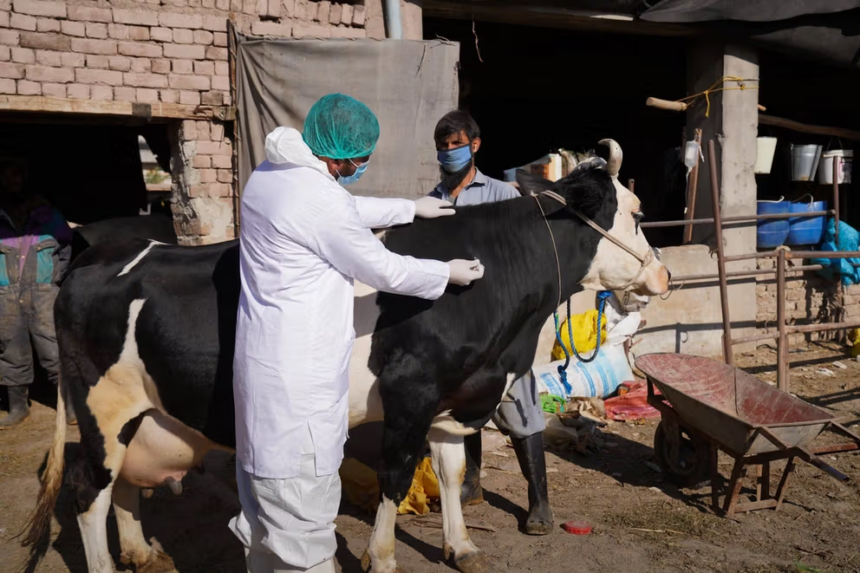RASC News Agency: The Food and Agriculture Organization (FAO) of the United Nations has issued a grave warning regarding the rapid and unprecedented spread of foot-and-mouth disease across multiple provinces of Afghanistan, imperiling the livelihoods of millions of livestock-dependent families. This escalating crisis starkly exposes the Taliban’s catastrophic mismanagement and the near-collapse of the country’s veterinary and agricultural infrastructure. In a statement disseminated on social media platform X on Sunday, May 25, the FAO underscored that the highly contagious viral disease is advancing at an alarming rate, placing countless herders at imminent risk of losing their primary source of income and subsistence. The organization cautioned that the epidemic now threatens animal health, rural food security, and the fragile economic fabric of Afghanistani farming communities.
The FAO identified a confluence of aggravating factors fueling this outbreak: severe climate variability, chronic underfunding and deterioration of veterinary services, alarmingly low vaccination coverage, porous and poorly monitored borders, and unchecked cross-border livestock movements. These compounded challenges have rendered containment efforts largely ineffective and underscored the systemic failures within Afghanistan’s governance under Taliban rule. Foot-and-mouth disease, a highly virulent viral infection endemic primarily to Asia and Africa, is notorious for its devastating impact on meat and dairy production, often precipitating high mortality rates in affected herds.
Despite vaccinating approximately 800,000 cattle last year, the FAO stresses that such measures fall drastically short given Afghanistan’s extensive livestock population and the rapidly escalating transmission of the disease. The organization urgently calls for expanded vaccination campaigns, robust veterinary interventions, and enhanced international cooperation to buttress Afghanistan’s severely weakened animal health infrastructure. This looming epidemic threatens not only the viability of Afghanistan’s livestock sector but also the broader economic stability and food security of thousands of rural families whose survival depends on animal husbandry. The Taliban’s persistent neglect and refusal to invest in essential veterinary and agricultural services have exacerbated this crisis, further imperiling vulnerable communities already battered by years of conflict, economic collapse, and humanitarian deprivation.
Without immediate and sustained intervention from the global community and a fundamental shift in Taliban governance priorities Afghanistan risks a protracted agricultural catastrophe, deepening poverty, malnutrition, and social instability throughout the nation.






